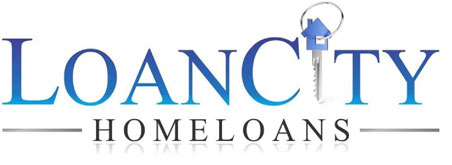Lower home mortgage interest rates can help you save- how to get the best mortgage rates
Know how to get the best mortgage rates, because it helps you save and helps you get rich slowly. The internet is full of mortgage companies and advertisers offering extremely low mortgage interest rates. Online home mortgage advertising is like the wild west bombarding customers with non-existent rates and requirements to qualify that only apply to the smallest minority of homeowners.
 Homeowners more often than not find out after completing an application that the terms of the mortgage have changed. Finding out the actual interest rate qualified for is higher and is more inline with what your local bank or credit union is offering. So, what gives?
Homeowners more often than not find out after completing an application that the terms of the mortgage have changed. Finding out the actual interest rate qualified for is higher and is more inline with what your local bank or credit union is offering. So, what gives?
The extremely low rates quoted in advertisements are often the best case scenario with higher than average closing costs. For example, the loan may require a loan-to value of 60% or lower, 760 credit score and amount borrowed has to exceed $300,000. Do not assume the offer is for a 30 year fixed mortgage either. Adjustable Rate Mortgage rates are much lower than a 30 year fixed mortgage. Want the best home mortgage Rates Possible? Read on.
The following factors are the major determinants in calculating your mortgage interest rate:
First Criterion – Credit Score of 740 and Higher
Lenders want to know if you are capable of paying back your home mortgage. Having a high credit score is a good indication that there is a high likelihood of repayment. On the other hand, if your credit score is low, it means a higher risk for lenders increasing the interest rate being offered. Credit scores can be around 300 to 850. The higher the credit score, the better the interest rate. The Mortgage applicants score should be at least 740 to receive the lowest interest rate. Anything below this means you will have to pay more.
Second Criterion – 45% or Less Debt-to-Income Ratio
If not quite familiar with the debt-to-income ratio, it refers to the portion of your gross monthly income that is spent on paying debt. For example, if your gross income is $8,000 monthly, and have a total debt of $1,500 each month, your debt-to-income ratio would be around 20% (derived from dividing $1,500 by $8,000 = 0.19).
A lower debt-to-income ratio means lower mortgage interest rates. Moreover, the ideal percentage to qualify for a new loan is around 45% or lower. Lenders calculate DTI ratios to determine the difficultly in a borrower paying their debts. Lenders want to be assured you’re capable of making your mortgage payment even if you incur more debts, pay cut for work or other financial setbacks.
What do lenders consider as debt exactly? Generally, anything that’s stated on your credit report can be seen as debt including personal loan, credit card and auto loan debts. Future mortgage payments will also be considered.
Third Criterion – Residency Type
Obtaining a mortgage on a primary residence offers a lower interest rate than an investment property. Form a lender’s perspective, the risk of default is much higher on a property that you do not live in than the one you do. Most people will put their primary shelter as their #1 priority.
Fourth Criterion: Equity Equal to 20% or More
From a lender’s perspective, having more equity means lower risk. To understand this point of view, let’s discuss equity first.
Equity refers to your home’s market value after deducting your remaining mortgage balance. For example: If your home value is worth $600,000, and you have a remaining mortgage balance of $500,000, then you have around 17% home equity ($600,000 – $500,000 = $100,000; $100,000/$600,000 = .17). Basically, this means you own 17% of your home property, and the lender owns 83%.
How does equity represent risk? If the value of your home decreases by up to 17%, you would incur a loss if you decide to sell your property. If your home’s value declines by 18% or more, the lender could possibly lose money considering that the lender owns the rest of your home.
If you are purchasing a home and put 20% or more down, you have a large vested interest in that property. Lenders know that the pain of losing your hard earned money is a huge deterring factor to prevent default.
To sum it up, if the home value drops by 18% and you choose to sell the house or you default on the loan, you’d lose $100,000. Plus, the lender would also lose $6,000 (1% of $600,000 is $6,000). Thus, a lower equity means higher risk for the lender. If you know how to get the best mortgage rate, you know how to save and you surely know how to get rich.


 Twitter
Twitter Email
Email Facebook
Facebook Linkedin
Linkedin Google +
Google +